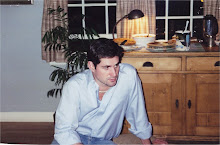
In Ralph Waldo Emerson's speech, The American Scholar, he use the term "man-thinking" to denote an independent thinker, or one who is free of constraining fetters of conformity and dogmatic beliefs. The mind of the independent thinker is engaged by the spectacles of nature and ponders his connection to "the inexplicable continuity of this web of God." The scholar sees his connection to nature and his soul's reflection therein; thus, to study and contemplate nature is to study and contemplate one's soul. The scholar also finds inspiration in books and knowledge; however, the true man-thinker uses this rich source of information to create ideas relevant and reflective of his day. He does not deify past thinkers nor apotheosize their works. Great minds think against themselves and accepted ideas in an attempt to arrive at their own personal truth; they are not afraid of contradiction and change.
One of interesting comments Emerson makes about the universe is it is "without center, without circumference." (If you saw the movie "I (heart) Huckabees" this should sound familiar.) The size and scope of the universe is beyond our imagination and understanding. What thoughts do you have about the universe? What thoughts does the universe inspire you to think? Think for yourself and be a non-conformist.
One of interesting comments Emerson makes about the universe is it is "without center, without circumference." (If you saw the movie "I (heart) Huckabees" this should sound familiar.) The size and scope of the universe is beyond our imagination and understanding. What thoughts do you have about the universe? What thoughts does the universe inspire you to think? Think for yourself and be a non-conformist.

